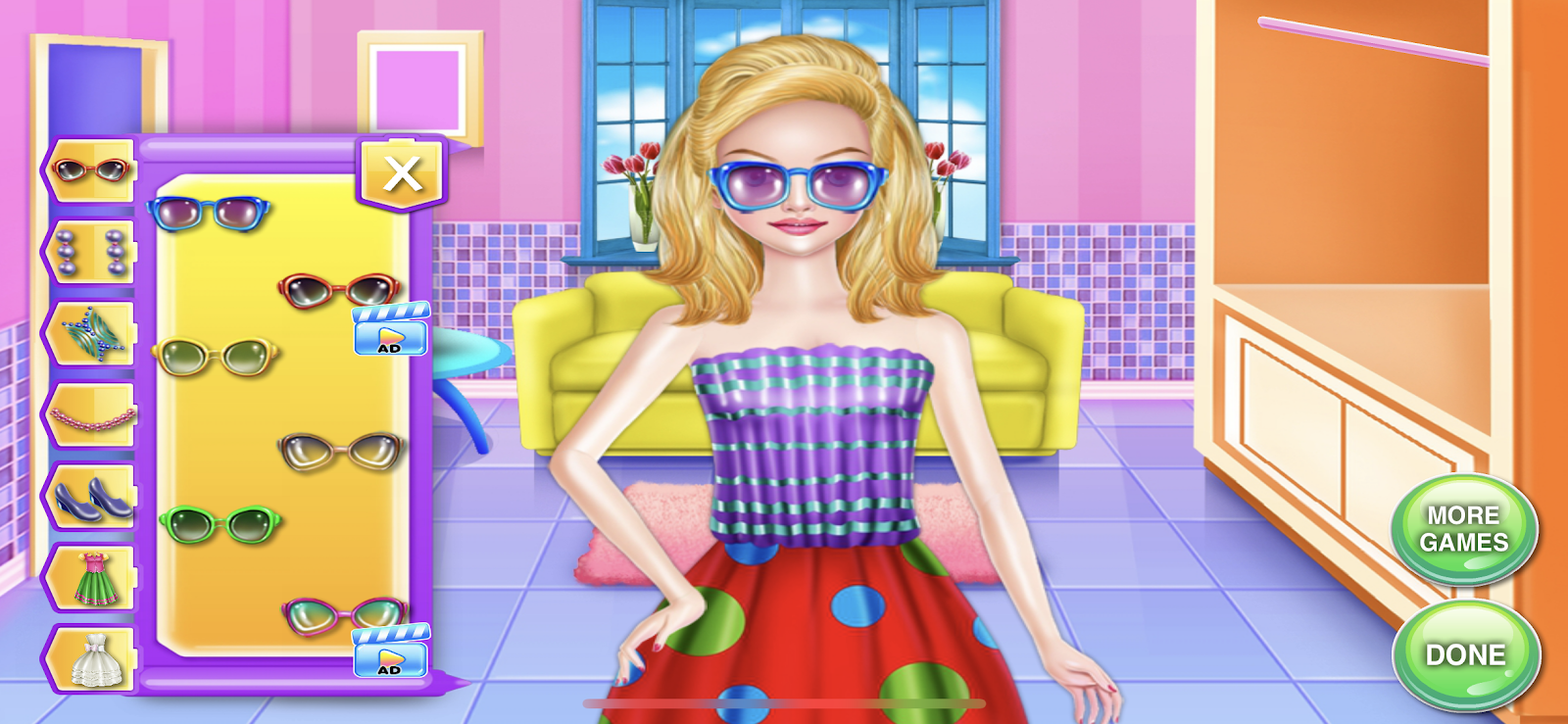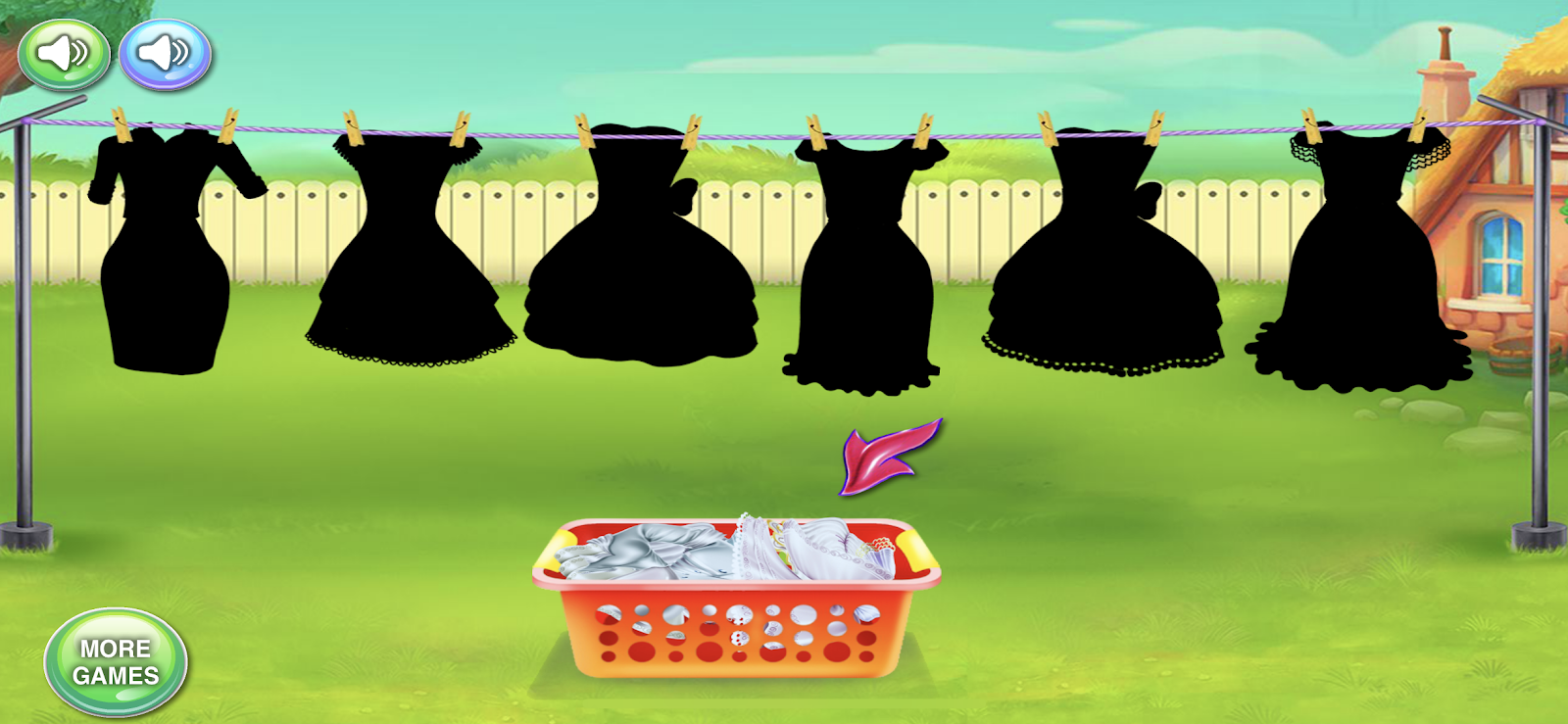
Welcome to Pixalate’s CTV & Mobile App Manual Reviews According to COPPA, a series containing the detailed factors the Trust & Safety Advisory Board educators used to assess an app’s child-directedness.
The educators manually review thousands of mobile apps available in the Google Play & Apple App Stores as well as connected TV (CTV) apps from the Roku Channel Store and Amazon Fire TV App Store using the COPPA Rule factors shown below & make those results available to the public at ratings.pixalate.com.
This post takes a look at a game from the Apple App Store. Our reviewer discusses how the subjective factors set forth in the COPPA Rule apply to the app and factor into the reviewer's determination as to whether the app is child-directed or general audience (i.e., it is not targeting children).

The teacher will indicate the factors they relied upon in their assessment using the 10 factors shown below that reflect the 10 child-directed factors in the COPPA Rule.

and
![]()
Olivia’s Washing Laundry Game is a colorful and cartoonish game which allows the user to engage in virtual pretend play. Many young children love to play ‘house’ - here they can join in to do the laundry without fear of color runs or detergent accidents! Throughout the game, the user has the option to select ‘More Games.’ This links to a list of other apps by the developer which also appear to be child-directed. With titles such as Princess Prom Beauty Mask and Colorful Cooking Ice Cream, these other apps follow the same theme as Olivia’s Laundry - bright, frothy fun with a real-life pretend play element to them.
Ads appear frequently throughout play, with the first appearing right at the start of the game. The ads are generally mixed topics: one finance app for adults, three childrens games. Overall, more ads were observed to be aimed at children than adults.
![]()
Every step of the game has an arrow or picture for guidance as to the next action to be taken. This motivates the user to keep going - there is always something else to do. The player is guided through each stage of laundry, from separating the clothes by color, through hanging out to dry, to ironing and hanging up. Finally, you can dress your character in freshly washed clothes. At this point, you can also choose to watch a thirty-second ad to gain access to extra accessories. After completing the first load of laundry, the user progresses to Level Two, a feat rewarded by the introduction of a friend and a virtual supermarket shopping trip to buy pancake and milkshake ingredients. These incentives within the game offer the player motivation and a ‘hook’ to keep playing, which young children are especially interested in.
Privacy
The developers Privacy Policy state that their apps are intended for general audiences and they do not knowingly collect children’s information. The policy states that in order to comply with various children’s privacy laws, you may see an age verification screen, when launching an application and a parental verification screen. However, there was no age gate on this app and nowhere to add any information about the user’s age.
Screenshots of Olivia’s Washing Laundry Game


Pixalate’s Trust and Safety Advisory Board was created to bring in individuals with experience using child-directed apps in the classroom to review and assess which apps are child-directed. This manual review process serves to quality check Pixalate’s automated review process. See our full methodology for more information.
Disclaimer
This blog post published by Pixalate is available for informational purposes only and is not considered legal advice. By viewing this blog post, the reader understands and agrees that there is no attorney-client relationship between the reader and the blog publisher. The blog should not be used as a substitute for legal advice from a licensed professional attorney in the applicable jurisdiction(s), and readers are urged to consult their own legal counsel on any specific legal questions concerning any specific situation. The content of this blog post reflects Pixalate's opinions with respect to factors that Pixalate believes may be useful to the digital media industry. Pixalate's opinions are just that, opinions, which means that they are neither facts nor guarantees; and this blog post is not intended to impugn the standing or reputation of any entity, person or app, but instead, to report findings pertaining to mobile and Connected TV (CTV) apps.
*By entering your email address and clicking Subscribe, you are agreeing to our Terms of Use and Privacy Policy.
These Stories on Mobile
*By entering your email address and clicking Subscribe, you are agreeing to our Terms of Use and Privacy Policy.

Disclaimer: The content of this page reflects Pixalate’s opinions with respect to the factors that Pixalate believes can be useful to the digital media industry. Any proprietary data shared is grounded in Pixalate’s proprietary technology and analytics, which Pixalate is continuously evaluating and updating. Any references to outside sources should not be construed as endorsements. Pixalate’s opinions are just that - opinion, not facts or guarantees.
Per the MRC, “'Fraud' is not intended to represent fraud as defined in various laws, statutes and ordinances or as conventionally used in U.S. Court or other legal proceedings, but rather a custom definition strictly for advertising measurement purposes. Also per the MRC, “‘Invalid Traffic’ is defined generally as traffic that does not meet certain ad serving quality or completeness criteria, or otherwise does not represent legitimate ad traffic that should be included in measurement counts. Among the reasons why ad traffic may be deemed invalid is it is a result of non-human traffic (spiders, bots, etc.), or activity designed to produce fraudulent traffic.”

